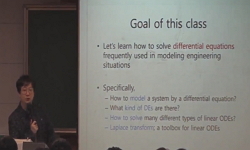Background: In terms of the Level 3 probabilistic safety assessment (Level 3 PSA), ingestion of food that had been exposed to radioactive materials is important to assess the intermediate- and long-term radiological dose. Because the ingestion dose is...
http://chineseinput.net/에서 pinyin(병음)방식으로 중국어를 변환할 수 있습니다.
변환된 중국어를 복사하여 사용하시면 됩니다.
- 中文 을 입력하시려면 zhongwen을 입력하시고 space를누르시면됩니다.
- 北京 을 입력하시려면 beijing을 입력하시고 space를 누르시면 됩니다.
https://www.riss.kr/link?id=A105514703
- 저자
- 발행기관
- 학술지명
- 권호사항
-
발행연도
2018
-
작성언어
English
- 주제어
-
등재정보
KCI등재
-
자료형태
학술저널
- 발행기관 URL
-
수록면
50-58(9쪽)
- DOI식별코드
- 제공처
- 소장기관
-
0
상세조회 -
0
다운로드
부가정보
다국어 초록 (Multilingual Abstract)
Background: In terms of the Level 3 probabilistic safety assessment (Level 3 PSA), ingestion of food that had been exposed to radioactive materials is important to assess the intermediate- and long-term radiological dose. Because the ingestion dose is considerably dependent upon the agricultural and dietary characteristics of each country, the reliability of the assessment results may become diminished if the characteristics of a foreign country are considered. Thus, this study intends to evaluate and analyze the ingestion dose of Korean during a severe accident by completely considering the available agricultural and dietary characteristics in Korea. Materials and Methods: This study uses COMIDA2, which is a program based on dynamic food chain model. It sets the parameters that are appropriate to Korean characteristics so that we can evaluate the inherent ingestion dose of Korean. The results were analyzed by considering the accident date and food category with regard to the $^{137}Cs$. Results and Discussion: The dose and contribution of the food category depicted distinctive differences based on the accident date. Particularly, the ingestion dose during the first and second years depicted a considerable difference by the accident date. However, after the third year, the effect of foliar absorption was negligible and exhibited a similar tendency along with the order of root uptake rate based on the food category. Conclusion: In this study, the agricultural and dietary characteristics of Korea were analyzed and evaluated the ingestion dose of Korean during a severe accident using COMIDA2. By considering the inherent characteristics of Korean, it can be determined that the results of this study will significantly contribute to the reliability of the Level 3 PSA.
동일학술지(권/호) 다른 논문
-
- The Korean Association for Radiation Protection
- Keum, Dong-Kwon
- 2018
- KCI등재
-
Discrepancies in Dose-volume Histograms Generated from Different Treatment Planning Systems
- The Korean Association for Radiation Protection
- Kim, Jung-in
- 2018
- KCI등재
-
- The Korean Association for Radiation Protection
- Oh, Jung-Min
- 2018
- KCI등재
-
Broad Beam Gamma-Ray Spectrometric Studies with Environmental Materials
- The Korean Association for Radiation Protection
- El-Kateb, Abdul-Hamid Hussein
- 2018
- KCI등재





 eArticle
eArticle




